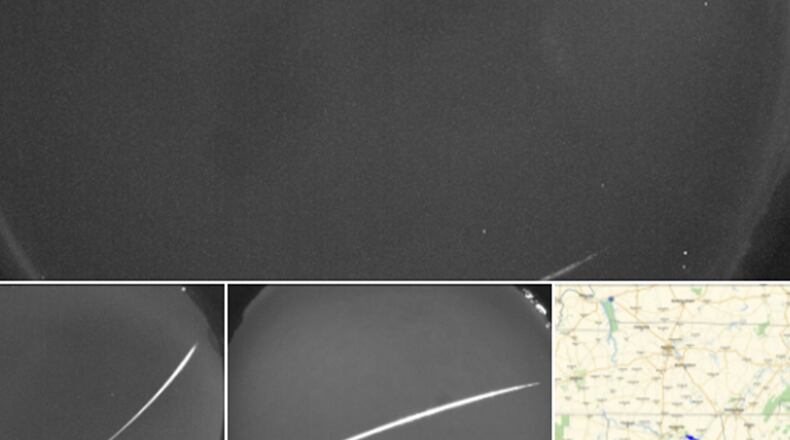A space object with an intimidating name — “earthgrazer” — zoomed over Georgia and Alabama this week, offering witnesses a glimpse of something rare, NASA says.
“Earthgrazers” are fireball meteors with a trajectory so shallow that they skim long distances across the upper atmosphere, NASA says.
“Very rarely, they even ‘bounce off’ the atmosphere and head back out into space,” NASA Meteor Watch wrote on Facebook.
The fireball appeared Tuesday about 6:30 p.m. ET, officials say, and was “detected by three NASA meteor cameras in the region.”
It entered the atmosphere “at a very shallow angle — only 5 degrees from the horizontal.”
In fact, it was flying for so long that NASA had to recalculate its data to determine how far it traveled across the planet.
“The meteor was first seen at an altitude of 55 miles above the Georgia town of Taylorsville, moving northwest at 38,500 miles per hour,” NASA says. Taylorsville is about 55 miles northwest of downtown Atlanta.
“Its path was so long that our automated software could not handle all the data. So we ran another analysis code this morning (Nov. 10) and discovered that the fireball traveled ... a whopping 186 miles through the air,” according to NASA. “The revised calculations put the end point 34 miles above the town of Lutts, in southern Tennessee.”
It was “a rare meteor for those fortunate enough to see it,” NASA officials say.
An overcast sky in the region blocked the view for many people and also foiled attempts to estimate the size of the rock, officials say.
Scientists believe it was “a small fragment of an asteroid burning up.”
NASA says an uptick in meteor sightings is expected annually between September and November as the planet “passes through a broad stream of debris left by Comet Encke.” The debris travels as fast as 65,000 mph as it “burns up” in the atmosphere.
About the Author

